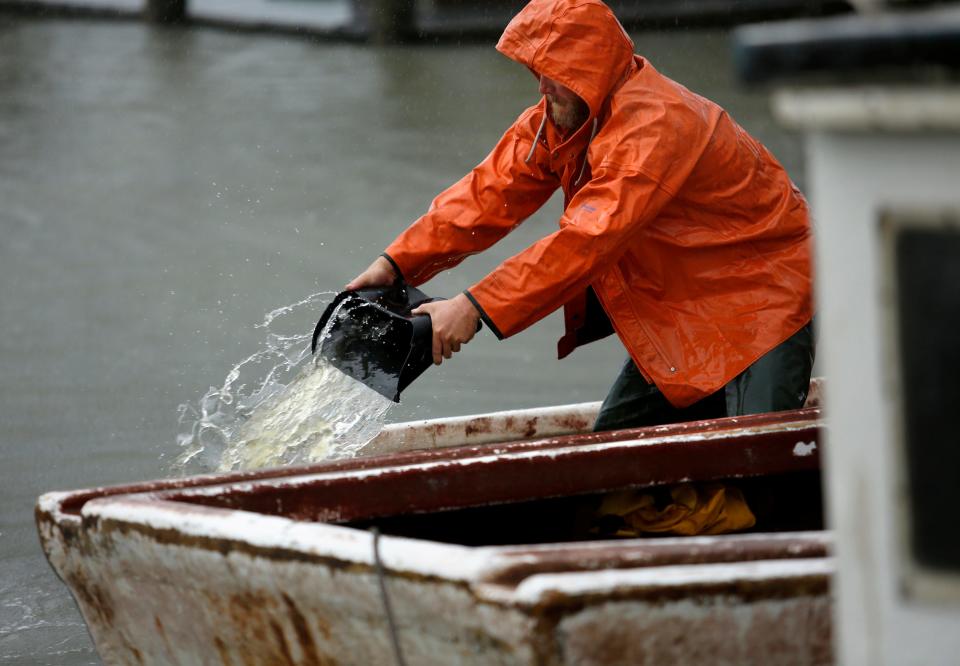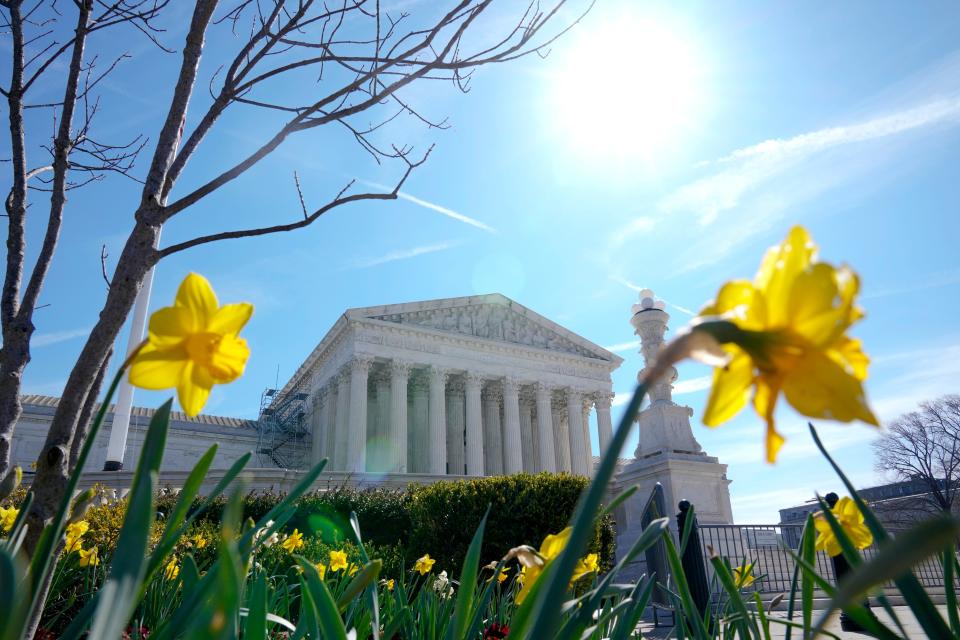How a group of herring fishermen may get the Supreme Court to reel in government power
WASHINGTON – Space is tight on the small boats that trawl the Atlantic in search of herring. Something else that's in short supply aboard: patience with the federal government.
Since 1976, federal inspectors have been allowed to join the five- or six-member crews fishing off the East Coast to ensure they follow regulations – an "enormous imposition," according to the fisherman. But starting in 2020, the government went a step further, requiring the industry to pay the salaries of the observers they take on.
Four family-owned fisheries sued the Commerce Department three years ago over that requirement. The Supreme Court announced Monday that it will decide their appeal – weighing into a dispute that could have consequences that reach far beyond seafood, affecting the power other federal agencies have to regulate.
While the case is focused on the fishing industry, the implications are vast and represent a major catch for conservatives who for decades have sought to limit the power of the "administrative state." Depending on how the Supreme Court rules, the decision could affect every facet of the federal government's ability to regulate pollution, the internet, gun accessories and even how Americans respond to the next global pandemic.
What the herring fishermen are saying about their fight with the government
What's at stake in a major Supreme Court case about herring fishermen? To require the fisherman to pay the inspectors' salaries, the government relies on a section of a 1976 law that gives the National Marine Fisheries Service power to impose regulations that are "necessary and appropriate" to manage the species.
For decades, conservatives, in particular, have been trying to limit the government's power to impose regulations based on similarly vague language. A ruling for the fishermen could lead to successful challenges of other regulations dealing with the environment, guns and how the U.S. responds to the next pandemic.
The Supreme Court will likely hear arguments in the case, Loper Bright Enterprises v. Raimondo, in the next term that begins this fall. A decision may not come until next year.

What the herring fishermen are saying about their fight with the government
In their appeal to the Supreme Court, the fishermen argue that "space on board a commercial fishing vessel is a scarce and precious resource." And so taking one member off the crew to bring on an inspector is an "enormous imposition."
"Making the fishing vessels foot the bill for that imposition adds insult to injury," an attorney for the four fisheries told the high court last year. The cost of having an "at-sea monitor" is more than $700 a day, according to court records.
Tracker: A look at the key cases pending before the Supreme Court
Power: Biden's ability to bypass Congress faces 'major' legal hurdle
The Biden administration points to another section of the law that suggests Congress wanted the agency to have the power to require the companies to pay for the monitors. It also argued that there was good reason for the tougher regulations: The herring population off the Atlantic Coast was nearing dangerously low levels.
"The stock in the Atlantic herring fishery was found in 2018 to be 'approaching an overfished condition' and, by 2020, to be in fact 'overfished,'" the government said.
Two lower courts sided with the government.

Why Biden should be paying attention to the fishermen now before SCOTUS
Federal courts – including the Supreme Court – have been clamping down on attempts by federal agencies to make policy decisions without explicit approval from Congress for years. So when the administration attempted to extend an eviction moratorium during the COVID-19 pandemic and was rebuffed in 2021. When it tried to impose a vaccine-or-testing mandate on large employers and it was similarly shot down last year.
The question of how far federal agencies may go without explicit approval from Congress is one that keeps coming up at the Supreme Court. A pending challenge to President Joe Biden's student loan forgiveness plan is being fought along similar lines.
Spillover: How a Supreme Court case about a gay couple's wedding cake got caught up in Israeli judicial reform
'Racist taint': Will the Supreme Court review a Jim Crow-era voting ban targeted at Black Mississippians?
For years, courts have been guided by a landmark 1984 precedent in Chevron U.S.A. v. Natural Resources Defense Council, which directed judges to defer to an agency's take when a law passed by Congress is unclear. As long as an agency's interpretation was "reasonable," under that so-called "Chevron deference," the agency won and its regulations would be upheld.
But that deference has been a target for conservatives – including many on the Supreme Court – who see federal agencies as attempting to make end runs around a gridlocked Congress. The high court has been chipping away at agency deference.
The fisherman asked the high court to overturn the Chevron decision and wipe out deference to agencies. Although the court could have focused its work on a more narrow outcome, it chose instead to target what conservatives see as the trophy fish.
This article originally appeared on USA TODAY: Supreme Court to weigh federal power in appeal from herring fishermen

